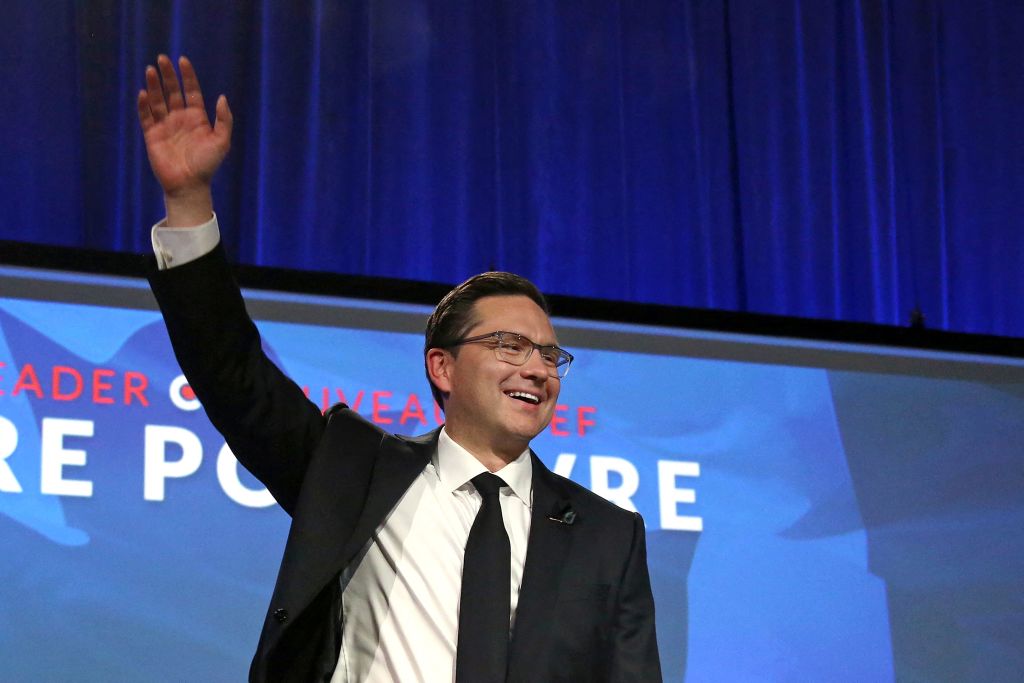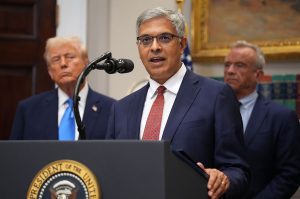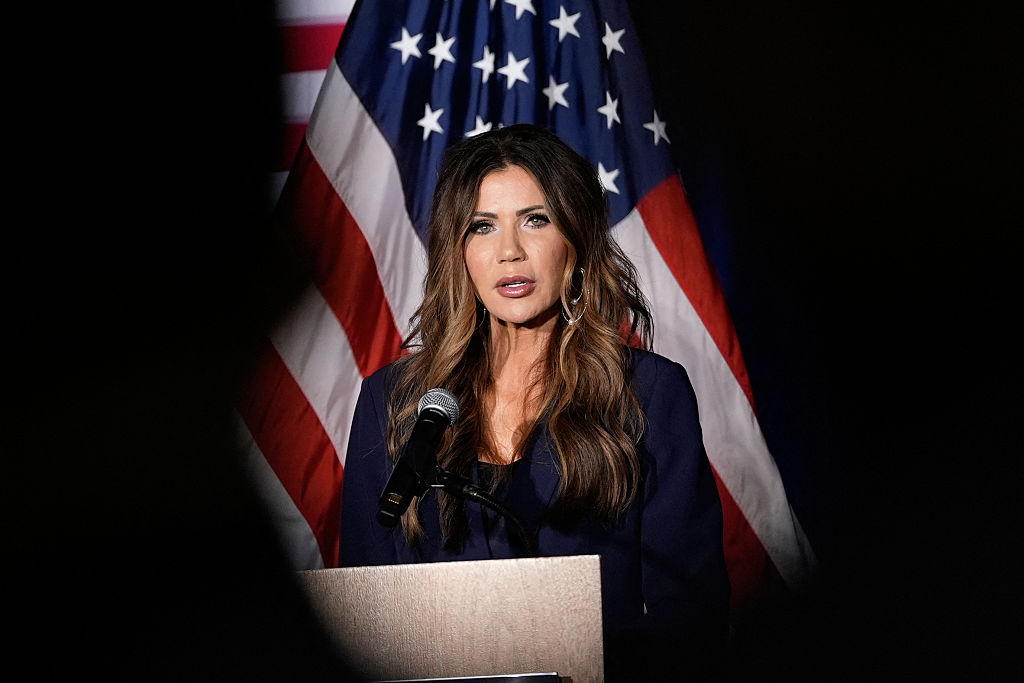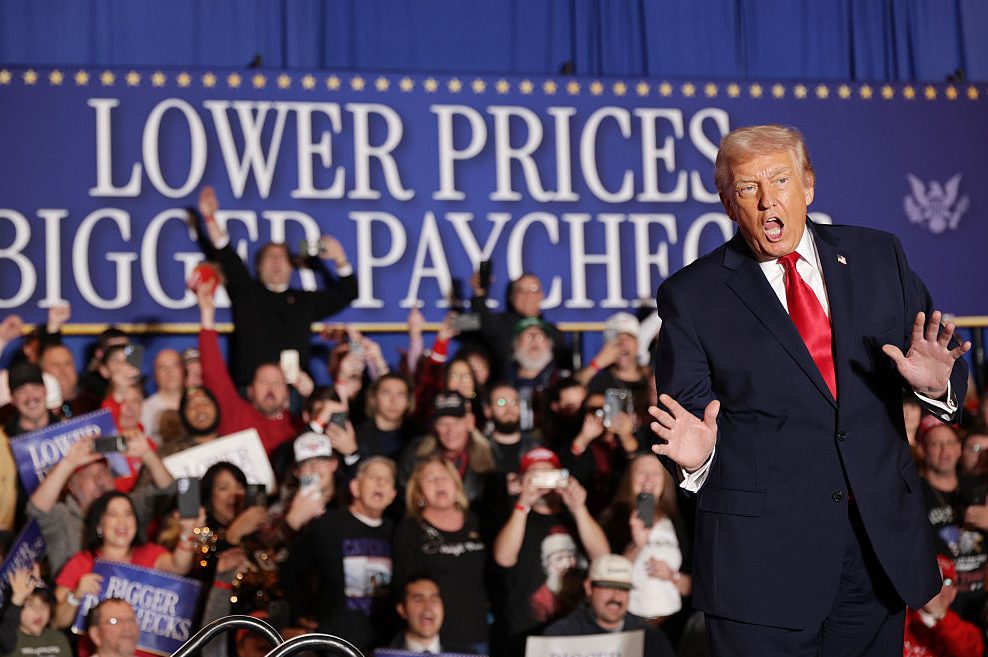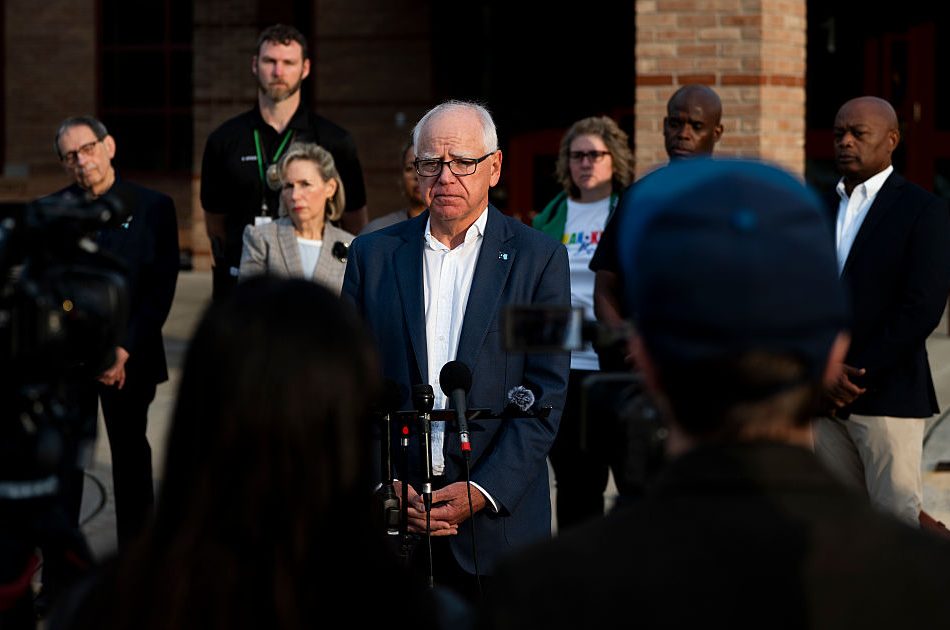Contrary to media messaging, Pierre Poilievre, the new leader of Canada’s Conservative Party, is no Donald Trump. But he does represent a challenge to the left, so the brush must be dipped in the most lurid colors available.
On September 10, Poilievre won the Conservative leadership contest in a landslide, giving the party its first credible leader since Stephen Harper. Andrew Scheer, a former leader who squared off against Justin Trudeau, was likable but failed to project confidence, notably when the left held his feet to the fire over his Catholic pro-life views. Far less convincing was Scheer’s successor, Erin O’Toole, who wasn’t even likable. When it came to policy, O’Toole acted like a Liberal who’d somehow wandered into the Conservative caucus.
Poilievre, on the other hand, radiates confidence — he’s tough, razor-sharp, and has been, not inaptly, called a bulldog for his tenacious critiques. Away from the cameras, he remains well-liked by colleagues on both sides of the floor. His leadership campaign struck a commonsense, pragmatic tone that has resonated well with the middle and working classes.
As for his conservative views, they focus on small government, tax cuts and a stable economy. He opposes vaccine mandates and — a good Calgary boy — supports the oil and gas industry. He opposes the World Economic Forum, for which he has been accused of conspiracy-mongering, and a carbon tax. That said, on social issues, he’s not so much traditionally conservative as libertarian — thus did third place in the leadership vote go to pro-life favorite Leslyn Lewis. Social conservatives are now calling on Poilievre to give Lewis a prominent place in his shadow cabinet.
Poilievre ran a hugely successful leadership campaign, taking full advantage of social media messaging. He recruited record numbers of new party members and his campaign accounted for over half of Canada’s biggest political fundraising campaign ever ($8.3 million from 55,000 donors — federal law caps individual contributions at $1,675).
His opponents are many and powerful. They include not just Trudeau’s Liberal party but the progressive New Democratic Party (NDP), which has (to its disgrace) sold its independence for a mess of pottage, striking a bargain with Trudeau’s minority government that guarantees the passage of every piece of Liberal legislation for the next three years, or until the government chooses to trigger an election. Key among his enemies is the CBC, Canada’s publicly funded media organization, which is widely regarded as a mouthpiece for the Liberal government, and which Poilievre has threatened to defund if he becomes prime minister.
Scarifying has been his opponents’ main counterargument up to this point. They’ve called him the Canadian Donald Trump so many times no one can keep count. The media has been serving up a steady diet of word salads using language like “toxic,” “defensive,” “dangerous” “controversial,” “polarizing,” and “conspiracy.” Otherwise nuanced articles are headlined “Why is Pierre Poilievre so angry?”
Don’t get me wrong: there are plenty of fair critiques that can be directed at Poilievre. But this is pure and simple emoting. The left doesn’t need to psychoanalyze Poilievre; they need to analyze his policies. And some of them are. But the overarching narrative is what Canadians have come to expect from their governing class and state media: emotional manipulation and bullying.
The “Canadian Donald Trump” line is particularly despicable. It’s not an argument but a threat: if you support Poilievre, you can expect the same contempt and marginalization as that inflicted on supporters of President Trump. The threat was nicely spelled out in the Toronto Star last week when a staff columnist warned that Poilievre is “callously courting deplorables” “who spout far-right, white supremacist, sexist, racist and anti-intellectual opinions,” “potentially leading us down the same dark and nasty road that Trump has taken Americans, all in a sleazy bid to attain power…” In other words, support Poilievre and you’re a baddie.
Demonization has become run-of-the-mill weaponry in the arsenal of Trudeau’s Liberal Party. Remember how supporters of the truckers’ convoy were demonized as racist, Trump-loving extremists — even though race and Trump had absolutely nothing to do with it? Or remember how Trudeau’s party demonized the unvaccinated in order to create a wedge issue in the federal election, with senior Liberals going so far as to hold public discussions about denying them medical care?
Social manipulation aside, serious comparisons between Pierre Poilievre and Donald Trump reveal that the two men are in fact very different, both in personality and in policy. Trump has an undeniable charisma and appeals emotionally to his supporters in a way that Poilievre — who exudes the warmth and charm of a successful accountant — does not. (That’s not quite fair, of course: Poilievre’s wit, smarts and love for a good verbal punch-up are rightly appreciated.)
The US presidency grants a great deal of power to one man, and Trump, larger than life, filled the part and wielded executive authority with panache. The Canadian prime ministry offers nowhere near that level of power and has never been as glamorized as the presidency. Poilievre is also focused on reducing government power, not building it. Trump was, and is, a personality. Poilievre is a cerebral worker bee.
Trump and his team took a serious interest in social issues and in the culture wars; Poilievre’s libertarian stance allows him to avoid anything beyond superficial engagement on moral and philosophical issues. Though the road ahead of Trump is far from clear, it is still theoretically possible that he or someone of similar stature could spearhead lasting cultural healing in the torn and distressed United States. Whereas unless Poilievre develops a more profound social philosophy, it is unlikely that his pragmatic approach will do more than temporarily alleviate some of the most crushing burdens inflicted upon Canadians by their government.
But Poilievre is a relatively young man — only 43 — and a very intelligent one. He is a serious threat to the current Liberal-NDP-media junta. Perhaps in time he will come to understand that for a society to succeed, it can’t simply aim for freedom. Instead, it must come together to define its vision of what a good society looks like, and proactively work to build that vision. If not now, then when? If not our leaders, then who?



